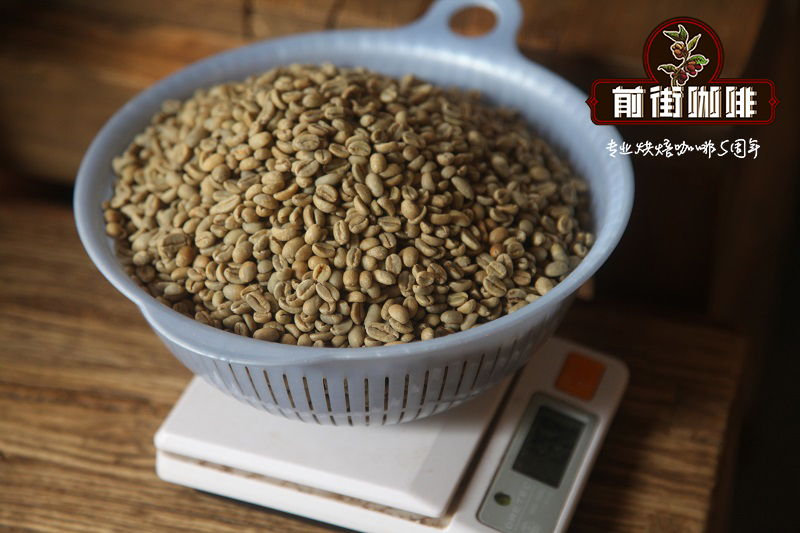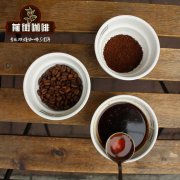Tanzania Coffee-are the coffee beans in the Shiviwaka producing area of Shvivaka bitter? What's the wind?

Professional coffee knowledge exchange more coffee bean information please follow the coffee workshop (Wechat official account cafe_style)
Tanzania Coffee-are the coffee beans in the Shiviwaka producing area of Shvivaka bitter? What flavor and taste do you have? How to cook it?
Tanzania is famous for its peaberry coffee, but this AA from Shiviwaka Co-Op in Tanzania is one of our best African coffees this year. Shiviwaka aims to help small farmers provide products to the market and bring positive changes to coffee growers in Tanzania, their families and communities, and the environment. Shiviwaka represents the interests of more than 8500 coffee farmers on the Mbeya,Mbozi,Ileje and Rungwe District councils. The organization first became the Apex organization for small farmers in Mbeya in 2007. It was registered as a farmer-owned non-governmental organization in 2009 under the non-Governmental organizations Act of 2002 and was granted the status of a company limited in 2014. There is no equity by guarantee. The organization helps member farmers optimize their coffee marketing, inform them of price fluctuations and quality requirements, and establish and maintain contacts with potential overseas buyers
Tanzania is near the border between Zambia and Malawi in the southern highlands of Tanzania. There are mountains, mineral-rich volcanic soil and green rolling hills-everything you need to grow Arabica coffee beans. The coffee is cultivated by a group of farmers called Shiviwaka. Shiviwaka, meaning Coffee Farmers' Association, was established in 2007 with the goal of increasing production and quality in order to improve livelihoods. Under the pillars of accountability, transparency, good governance and volunteerism, these farmers are achieving their mission by producing coffee like this: inspiration and excellence.
This washed coffee is a great Tanzanian, simple and straightforward. The cup test is sweet vanilla and coconut with melon flavor. The taste continues on the palate, with vanilla added with rich chocolate and melted butter. Crisp acidity, citrus-driven, delicate and smooth body. It reminds you of a great Kenyan AA-but we haven't included anything as good as Kenya for a long time.
Tanzania's main coffee-growing areas include Meru, Moshi (on the slopes of Kilimanjaro), Oldeani (on the slopes of Kilimanjaro), the plateau between Lake Pare,Taganyika and Lake Nyassa and Songea, the Rovuma region in southeastern Tanzania, where the Rovuma River forms most of the southern border with Mozambique.
Coffee from southern Tanzania tends to benefit from better dry conditions and better transportation, which is a big advantage, as many defective Tanzanian coffee batches are criticized for coming from "steam" in transport containers. See also Tanzania Peaberry coffee; Tanzania Kilimanjaro coffee. Arusha, Tanzania is the market name for Arusha coffee plants that grow in the mountains. Arusha grape varieties are Arabica coffee varieties, which can be Typica or French Mission varieties.
The three most distinctive coffee in Tanzania are Mosi, Arusha and Mount Kilimanjaro, all of which grow in the mountains. Mount Kilimanjaro is near the border between Tanzania and Kenya. Tanzania's high altitude makes almost all coffee strictly high-yielding (SHG).
Mbeya (the name of a major town) and Pare (a market name) extend further south between Lake Niassa and Lake Tanganyika in southern Tanzania, but are also respected, but in smaller quantities.
Altitude: 1400 to 1800 m above sea level
Arabica varieties: N&KP, Kent, bourbon
Harvest time: July-August (north); April to May (south)
The overall quality and consistency of green coffee production in Tanzania also lags far behind that of Kenyan coffee. The wine acidity of Tanzanian coffee is compared with that of Arabian coffee and African coffee. All Tanzanian coffee is wet-processed (washed). The grading system of Tanzanian coffee is similar to that of Kenyan coffee. Tanzania AA is the highest, followed by Ameme B.
The aroma of Tanzanian coffee may be rustic, sometimes with the sweetness of brown bread. In the aftertaste with a slight suggestion not to disperse the wildness of East Africa. Tanzanian coffee is slightly less acidic than Kenyan coffee and less consistent with a milder body. Although fruits and acidity are more low-key, they still shine. Ground Tanzanian coffee may bring sweet molasses aromas with floral and apple aromas.
Flavor: sweet vanilla and coconut with melon flavor. The taste continues on the palate, with vanilla added with rich chocolate and melted butter. Crisp acidity, citrus-driven, body delicate and smooth.
Qianjie coffee is recommended for brewing:
Filter cup: Hario V60
Water temperature: 88 degrees
Degree of grinding: small Fuji degree of grinding 4
Cooking methods: the ratio of water to powder is 1:15, 15g powder, the first injection of 25g water, 25 s steaming, the second injection to 120g water cut off, waiting for the powder bed water to half and then water injection, slow water injection until 225g water, extraction time about 2:00
Analysis: using three-stage brewing to clarify the flavor of the front, middle and back of the coffee. Because V60 has many ribs and the drainage speed is fast, it can prolong the extraction time when the water is cut off.
Important Notice :
前街咖啡 FrontStreet Coffee has moved to new addredd:
FrontStreet Coffee Address: 315,Donghua East Road,GuangZhou
Tel:020 38364473
- Prev

How do you drink Yemeni coffee? What are the characteristics of Yemeni coffee beans? Yemeni boutique coffee beans
Professional coffee knowledge exchange more coffee bean information please follow the coffee workshop (Wechat official account cafe_style) according to the World Coffee Research Institute, the first archaeological evidence of beverage coffee consumption has been found in the city of Zabid in Yemen. In the 15th century, coffee was grown in Yemen to meet local needs. In 1450, Islamic Sufi people in Yemen first prayed late at night.
- Next

Growing environment and history of AA coffee beans, a small farmer in Mbeya town, Shiviwaka producing area, Tanzania? Front street
Professional coffee knowledge exchange more coffee bean information please pay attention to the coffee workshop (Wechat official account cafe_style) Tanzania Shiviwaka producing area Mbeya small farmer AA coffee bean growing environment and history? How to brew Tanzanian coffee in Qianjie? Shiviwaka is the Swahili language of the Tanzania Coffee Farmers' Association registered as a farmer's own non-governmental organization in 2009.
Related
- Detailed explanation of Jadeite planting Land in Panamanian Jadeite Manor introduction to the grading system of Jadeite competitive bidding, Red bid, Green bid and Rose Summer
- Story of Coffee planting in Brenka region of Costa Rica Stonehenge Manor anaerobic heavy honey treatment of flavor mouth
- What's on the barrel of Blue Mountain Coffee beans?
- Can American coffee also pull flowers? How to use hot American style to pull out a good-looking pattern?
- Can you make a cold extract with coffee beans? What is the right proportion for cold-extracted coffee formula?
- Indonesian PWN Gold Mandrine Coffee Origin Features Flavor How to Chong? Mandolin coffee is American.
- A brief introduction to the flavor characteristics of Brazilian yellow bourbon coffee beans
- What is the effect of different water quality on the flavor of cold-extracted coffee? What kind of water is best for brewing coffee?
- Why do you think of Rose Summer whenever you mention Panamanian coffee?
- Introduction to the characteristics of authentic blue mountain coffee bean producing areas? What is the CIB Coffee Authority in Jamaica?

